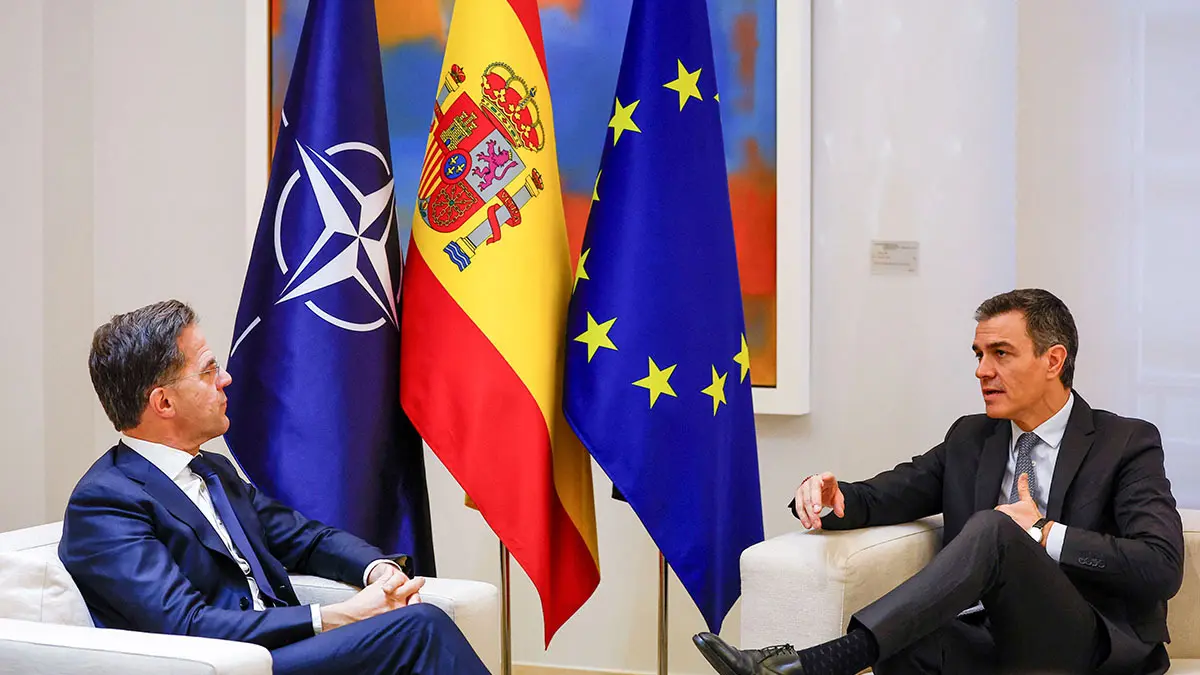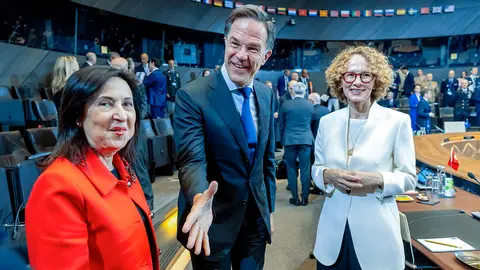Defence is not a game

Numerous dictators throughout history have done so, manipulating the feelings and emotions of citizens to provoke reactions of support for something as basic and obvious as preserving social spending, thereby weathering all kinds of political, economic and social crises.
Resorting to the false debate of tanks or butter is as absurd as it is obsolete in such a turbulent world, with enormous threats of destabilisation and confrontation such as those we are currently experiencing, where it is essential to restore an effective and reliable defence and security policy in order to guarantee the present and future of our citizens.
Furthermore, it is not just a question of money, of an excessive increase in budgets; the key lies in assimilating a consciousness and a culture of security and defence that are essential to face the challenges that are arising.
Pedro Sánchez has sent a letter to the NATO Secretary General asking for Spain to be excluded from the 5% increase in defence spending as discussed at the summit in The Hague. Sánchez claims that this increase is counterproductive and unnecessary and would force cuts in social spending. This self-serving and selfish position is toxic because it is based solely on electoral and power interests.
The White House has assured that the 5% increase applies to all NATO members, including Spain.
The international press is reporting the Spanish president's challenge as a threat to the success and unity of the Alliance in The Hague and pointing out Sánchez's ties to his far-left partners. In Spain, he is accused of trying to distract attention from serious internal corruption problems.
Why did Sánchez wait until the last minute to send this letter? Who did he consult or reach a consensus with on a decision of state? No one. Is there a desire for enormous prominence, a rush forward, a challenge to those who could have made a move to force Sánchez to resign over corruption in his party and is government?
Furthermore, Sánchez has made public an alleged agreement to reach 2.1%, and the next day the NATO secretary general denies it and sets the bar, with flexibility, at 3.5%.
This is a situation that causes mistrust and enormous discredit, not only for Sánchez's government but, unfortunately, for Spain as a whole.
There is no requirement for groupthink in NATO; dissent is possible, but it must be expressed with a loyal political attitude that is free of twisted, partisan and personal motives, such as preventing the far left from withdrawing its support if he were to commit to a better and more capable Western European defence, which would involve an increase in the defence and security budget and investment. But it is not just about money, it is about awareness and culture of something that has become essential, such as our stability, which should not be conditioned by supposed outdated ideologies or electoral interests.



